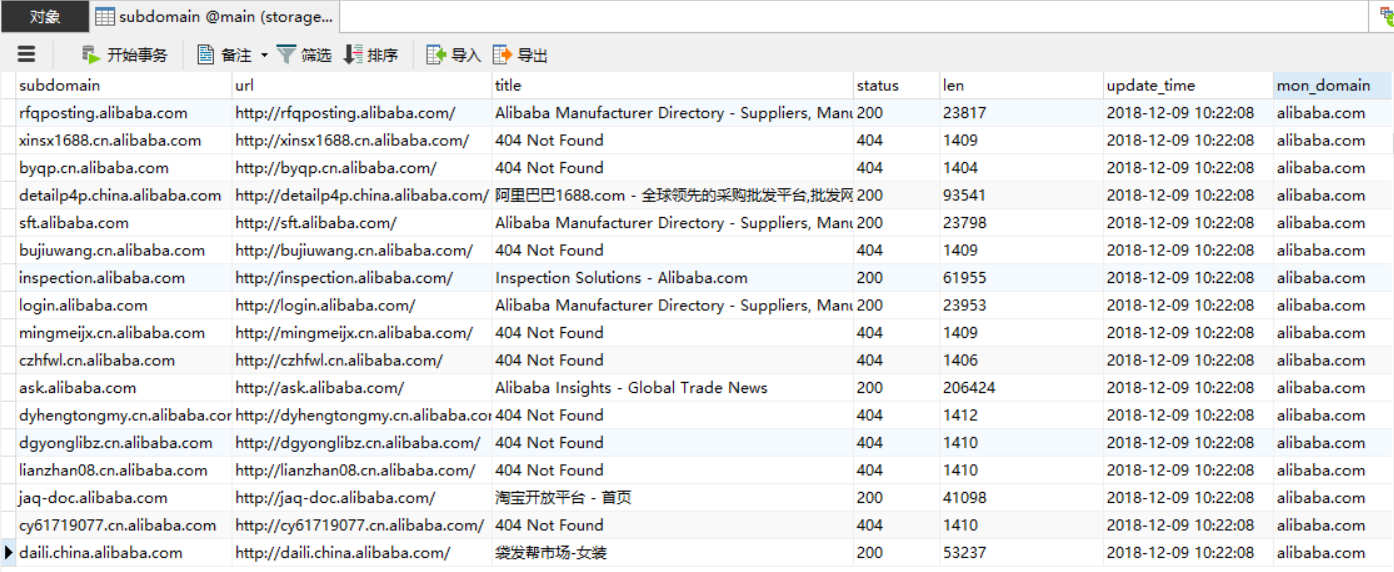https://github.com/orleven/srcscan
SRCScan(submon) is a SRC assistant tool that periodically scans subdomains and requests WEB services on port 80/443 to check if it is available, and send result to you by e-mail.
https://github.com/orleven/srcscan
Last synced: 8 months ago
JSON representation
SRCScan(submon) is a SRC assistant tool that periodically scans subdomains and requests WEB services on port 80/443 to check if it is available, and send result to you by e-mail.
- Host: GitHub
- URL: https://github.com/orleven/srcscan
- Owner: orleven
- Created: 2018-12-09T06:35:20.000Z (almost 7 years ago)
- Default Branch: master
- Last Pushed: 2021-02-26T02:20:21.000Z (almost 5 years ago)
- Last Synced: 2025-03-29T12:11:26.712Z (8 months ago)
- Language: Python
- Homepage:
- Size: 708 KB
- Stars: 18
- Watchers: 3
- Forks: 9
- Open Issues: 3
-
Metadata Files:
- Readme: README.md
Awesome Lists containing this project
- awesome-hacking-lists - orleven/srcscan - SRCScan(submon) is a SRC assistant tool that periodically scans subdomains and requests WEB services on port 80/443 to check if it is available, and send result to you by e-mail. (Python)
README
# SRC Scan
```
___________ _____ _____
/ ___| ___ \/ __ \ / ___|
\ `--.| |_/ /| / \/ \ `--. ___ __ _ _ __
`--. \ / | | `--. \/ __/ _` | '_ \
/\__/ / |\ \ | \__/\ /\__/ / (_| (_| | | | | version: 1.0
\____/\_| \_| \____/ \____/ \___\__,_|_| |_| author: @orleven
```
srcscan is a SRC assistant tool that periodically scans subdomains and requests WEB services on port 80/443 to check if it is available, and send result to you by e-mail.
Also srcscan can scan subdomain and scan url and scan vul for xray...
[](https://www.python.org/)
### Install
```
pip3 install -r requirements.txt
```
### Usage
1. First, set basic, smtp config in srcscan.conf, and the srcscan.conf file is created the first time you run it.
```
[basic]
thread_num = 10
looptimer = 1209600 # two week
timeout = 5
max_retries = 3
[domain]
proxy = False
http_proxy = http://127.0.0.1:1080 # The proxy config for sub domian scan
https_proxy = https://127.0.0.1:1080 # The proxy config for sub domian scan
[crawlergo]
crawlergo_path = C:\Soft\MyTools\srcscan\tools\crawlergo_windows_amd64\crawlergo
chrome_path = C:\Program Files (x86)\Google\Chrome\Application\chrome.exe
http_proxy = http://127.0.0.1:8080 # The proxy config for xray scan
https_proxy = https://127.0.0.1:8080 # The proxy config for xray scan
username = username # The proxy auth config for xray scan
password = password # The proxy auth config for xray scan
[smtp]
mail_host = smtp.163.com
mail_port = 465
mail_user = username
mail_pass = password
sender = username@163.com
receivers = username@qq.com,username@qq.com
[proxy]
proxy = False # The setting of proxy
http_proxy = http://127.0.0.1:1080
https_proxy = https://127.0.0.1:1080
...
```
2. Scan
2.1 Scan subdomain
```
py -3 srcscan.py -d example.com
py -3 srcscan.py -df file.text # file path
py -3 srcscan.py -df domain # dir path, and you can add domain.txt in ./domain/
py -3 srcscan.py -d example.com -ss # by nomal model
```
2.2 Scan subdomain, url and vul
2.2.1. Start running xray
```ssh
nohup ./xray_linux_amd64 webscan --listen 0.0.0.0:8000 --html-output proxy.html &
```
2.2.2. Start running srcscan.py
```
py -3 srcscan.py -df domain -ss -vs # dir path, and you can add domain.txt in ./domain/
```

3. And then, wait for e-mail of result.

4. Also, you can see all result in srcscan.db.

### Thacks
1. [recon](https://github.com/t0w4r/recon)